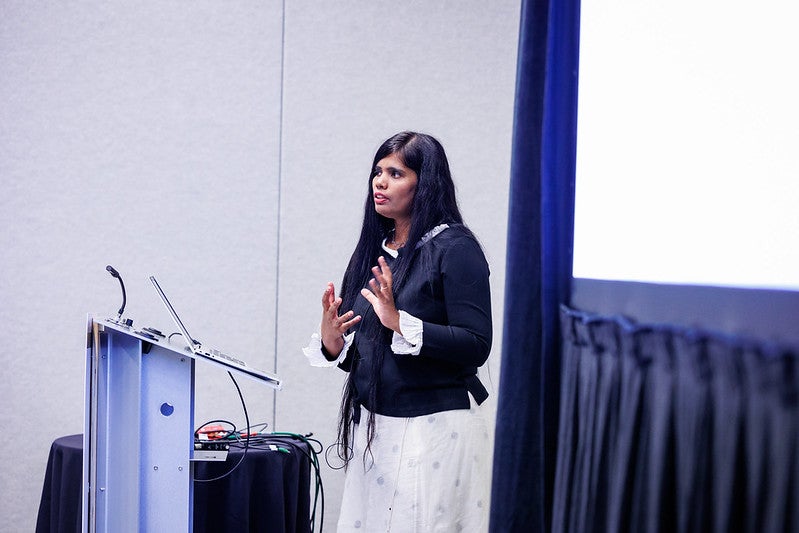In her session titled “Open Source for Energy Transition via Data Management – Eyes on a Major Prize” at SustainabilityCon North America, Aarthi Thyagarajan, the digital commercial lead at Shell India and open source leader at Shell, shed light on the crucial role of open source in driving the energy transition (video below). The talk focused on the significance of data platforms, standards, and collaboration in achieving decarbonization goals. Let’s delve into the key insights shared during the session.
- The Intersection of Energy Transition and Digitalization:
Thyagarajan highlighted the intertwined nature of energy transition and digitalization. She emphasized that digitalization, particularly through data and AI, is a powerful lever for decarbonization. The report mentioned in the session underscored the importance of digitalization in achieving climate goals, making it even more pertinent to the energy industry’s transformation.
- The Role of Open Source in Energy Transition:
The talk emphasized the criticality of open source in the energy transition journey. Thyagarajan stressed that open source is not limited to a single company but rather essential for the global energy transition. By fostering collaboration, transparency, and standardization, open source enables the development of seamless foundational technologies that drive decarbonization efforts.
- Real-Time Data Ingestion Platform (RTDIP):
Thyagarajan showcased the Real-Time Data Ingestion Platform (RTDIP) as an open source tool developed by Shell in collaboration with Linux Foundation Energy. RTDIP facilitates efficient data management and interoperability among various energy systems and sectors. It offers a user-friendly interface, algorithms, and toolkits, empowering users worldwide to optimize their energy systems and contribute to carbon emissions reduction.
- Collaborations and Partnerships:
The session emphasized the significance of partnerships and collaborations in the energy industry’s transformation. Thyagarajan discussed Shell’s initiatives like the Shell.ai Residency Program and the Open AI Energy Initiative. These programs bring together external talents, academic institutions, and technology partners to foster innovation, knowledge sharing, and upskilling to address the challenges of climate goals.
- The Way Forward:
Thyagarajan concluded the session by reiterating the importance of open-ended collaborations and the need for a standardized approach to data management. By embracing open source, energy companies can transcend traditional barriers, share codes, and work together towards decarbonization. Standardized data management and interoperability will play a crucial role in optimizing energy systems and driving the global energy transition.
In summary, the session highlighted the vital role of open source in the energy transition. By leveraging data platforms, standards, and collaborations, the industry can accelerate the adoption of sustainable practices. The Real-Time Data Ingestion Platform (RTDIP) serves as a prime example of how open source tools enable efficient data management and interoperability. With a focus on partnerships, knowledge sharing, and upskilling, energy companies can collectively work towards achieving their climate goals and fostering a sustainable future.
